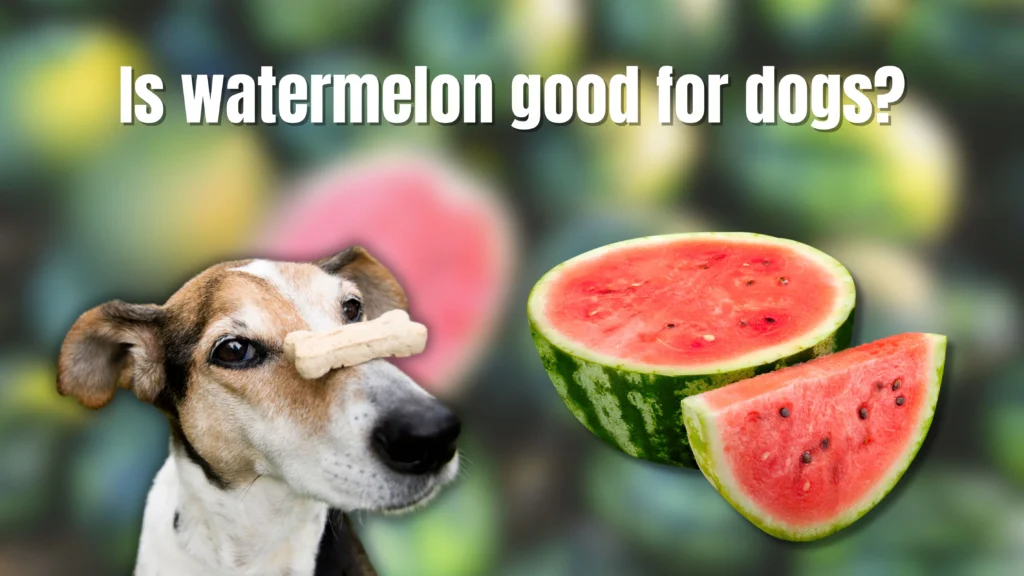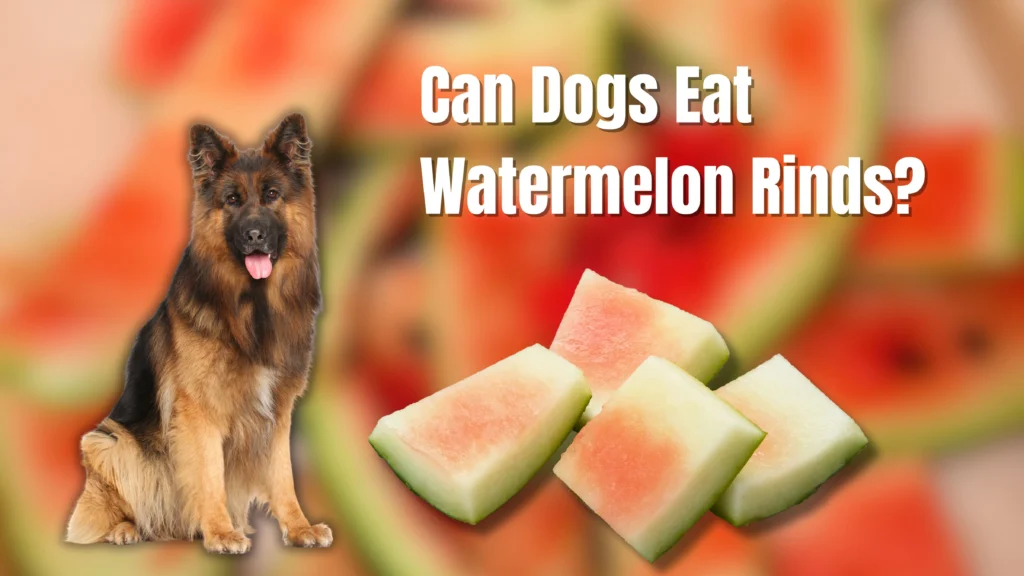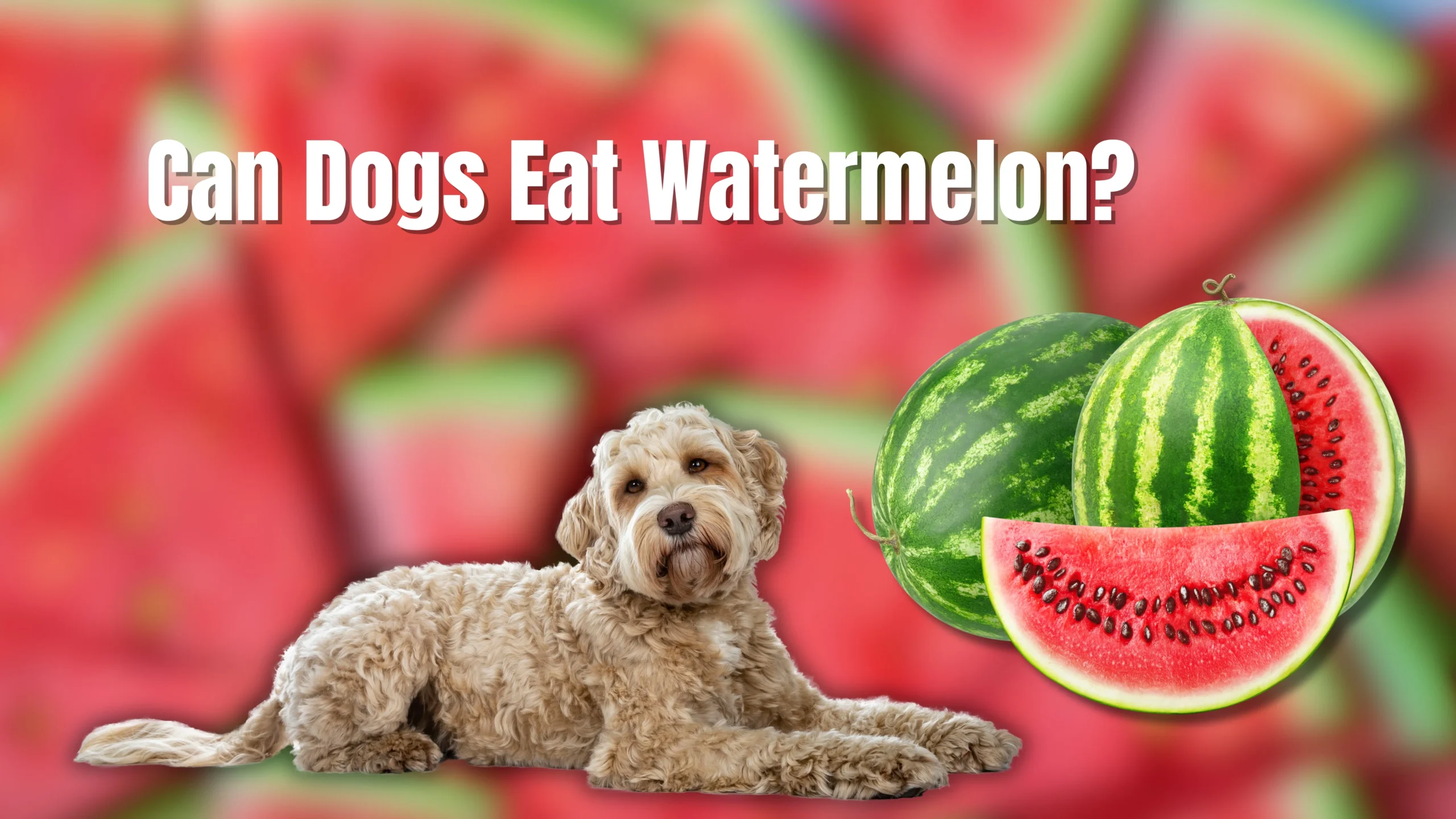Can Dogs Eat Watermelon?
Watermelon is a delightful and hydrating fruit that dogs can safely enjoy when prepared correctly. This summer favorite, known for its refreshing taste, is low in calories and consists of about 92% water, making it an excellent treat for hot days. Can Dogs Eat Watermelon? Packed with essential nutrients like vitamins A, B6, C, and potassium, watermelon can be a healthy addition to your dog’s diet, provided it is served without seeds and rind to prevent gastrointestinal issues.
Proper preparation is key to ensuring that your furry friend can indulge in this juicy snack without any risks. As a dog owner, you may wonder whether watermelon can be a regular part of your pet’s diet. The good news is that, for most dogs, this fruit poses no significant health risks.
However, it’s crucial to consider your dog’s individual health needs, particularly if they have diabetes or sugar sensitivities. Consulting with a veterinarian before introducing new foods, including watermelon, can help ensure that your dog’s nutritional needs are met while keeping them safe. When you enjoy watermelon during summer gatherings, don’t hesitate to share a piece with your dog, keeping in mind the necessary precautions. This refreshing treat not only allows for a bonding experience but also contributes to your pet’s hydration and overall well-being. With careful serving, watermelon can be a fun and beneficial snack for your canine companion.
Can Puppies Eat Watermelon?
Watermelon for Puppies: A Balanced Treat
Watermelon can be a refreshing treat for puppies, but caution is essential due to their sensitive digestive systems. Before introducing this fruit into your puppy’s diet, it’s crucial to consult with your veterinarian to ensure it aligns with their nutritional needs. While watermelon is low in calories and packed with vitamins A, B6, C, and potassium, treats should only make up about 10% of a dog’s daily caloric intake. Since one cup of watermelon contains roughly 50 calories, it’s important to monitor portions carefully. With proper preparation and moderation, watermelon can be a safe and enjoyable snack for your furry friend.

Is watermelon good for dogs?
Watermelon can be a refreshing and hydrating snack for dogs, especially during warm summer days, consisting of 92% water. This makes it a better alternative to ice cream, which can upset your dog’s stomach due to its dairy content. Additionally, watermelon is low in calories, sodium, and fat, making it a relatively healthy treat when given occasionally. However, limiting its intake is essential since it contains natural sugars that could lead to health issues if consumed in excess.
Nutritional Considerations
Despite the nutritional benefits of watermelon, it’s important to remember that dogs already receive the essential nutrients they need from a complete and balanced diet. Therefore, watermelon should not be a regular part of their meals but rather an occasional treat. Overfeeding watermelon can lead to gastrointestinal upset, so moderation is key.
Serving Suggestions
When offering watermelon to your dog, ensure that only the fleshy fruit is given, avoiding the rind and seeds, which can cause digestive problems. Always consult your veterinarian before introducing new foods to your dog’s diet to ensure their safety and health.
Avoid Harmful Alternatives
It’s crucial to avoid giving your dog watermelon-flavored sweets, drinks, or other products, as these often contain added sugars, sweeteners, and harmful additives that can be detrimental to their health. Instead, focus on providing fresh, whole fruits that are safe for dogs and packed with nutritional benefits.
Does watermelon give dogs diarrhea?
Moderation is Key
When treating your dog to watermelon, moderation is essential. Although this refreshing fruit can be a tasty snack, too much may lead to digestive issues such as diarrhea or vomiting. It’s crucial to keep portions small to avoid these unpleasant reactions. Additionally, while watermelon is low in calories, overindulgence can contribute to long-term health problems like obesity and diabetes due to its natural sugar content.
Healthy Treat Practices
Watermelon should complement, not replace, your dog’s regular balanced diet. Serving it as an occasional treat ensures that your furry friend continues to receive the necessary nutrients from their primary dog food. This approach supports their overall health while allowing them to enjoy the occasional refreshing snack.
Consult Your Veterinarian
Before introducing any new treat, including watermelon, it’s wise to consult your veterinarian. They can provide tailored advice regarding portion sizes and assess any potential health risks based on your dog’s specific needs. Taking this precaution helps ensure that your pet remains healthy and safe while enjoying a variety of treats.
Enjoying Watermelon Safely
While watermelon can be a delightful addition to your dog’s snack options, it is important to remove any seeds and rind before serving. These parts can pose a choking hazard or cause gastrointestinal upset. By preparing watermelon safely and offering it in moderation, you can let your dog indulge in this hydrating treat without compromising their health.

Can Dogs Eat Watermelon Rinds?
Choking Hazard of Watermelon Rind
It is essential to keep your dog safe by ensuring they do not consume watermelon rind. The rind can pose a significant choking hazard and may lead to intestinal blockages, which can be dangerous for your pet’s health. If you suspect that your dog has swallowed a piece of rind, it is crucial to contact your veterinarian immediately for advice and possible treatment. Proper preparation of watermelon involves removing both the rind and seeds, allowing your dog to enjoy the fruit without risks. Staying vigilant about your dog’s dietary safety can help prevent potential health complications.







